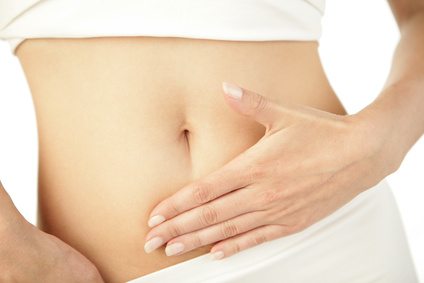BY
By Andrew Larson, MD, FACS, FASMBS
Here at Clean Cuisine and More and with my own patient population I am seeing increasing interest in prebiotics and probiotics both as standalone supplements and to be consumed in functional foods such as kefir, miso, tempeh, sauerkraut, bananas, artichokes, garlic, and whole wheat flour.
I recently came across an academic review article delineating several benefits for prebiotics and probiotics in children’s health in a highly respected medical journal1 and this article really peaked my interest. Since then I have done additional research on prebiotics and probiotics and I am now convinced they are an exciting area of preventive medicine for adults and kids alike.Prebiotics and probiotics are truly health-promoting substances that do live up to the hype.
What are Probiotics? What do Probiotics Do?
Probiotics are “friendly” bacteria that keep you healthy. Probiotics are living good bacteria that stay alive in your intestine after being consumed. These microscopic organisms work hard to alter the overall intestinal environment to a favorable one by crowding out bad bacteria such as viruses that might otherwise dominate and harm health. Even though they are bacteria, probiotics actually help protect your body from infection. Probiotics can stimulate and work with your immune system to improve your health and prevent, or even treat, certain diseases.
Probiotics help with digestion and nutrient absorption. Probiotics enable essential health promoting nutrients to be absorbed that otherwise would not have been able to cross the intestinal wall into the circulatory system. In fact, the depletion of “friendly” probiotics can lead to nutrient depletion and consequently inferior health; if your body can’t utilize the nutrient-dense foods you eat it’s just as bad as not consuming them in the first place. The regular consumption of probiotics will help your body to properly digest, process and utilize the food you eat. Probiotic consumption also increases the bioavailability of minerals, especially calcium.
Probiotics help detoxify and cleanse your body. Probiotics have been shown to support liver function and detoxification. These “friendly” bacteria filter toxins in the gut before they get into the bloodstream. The presence of probiotics speeds up the transfer time of toxic waste in your colon, thus preventing toxins from staying in your body and being reabsorbed in your bloodstream.
The Science Behind Probiotics & How a Probiotic Rx Might Help You
The strongest evidence for probiotic benefits exists for the prevention and treatment of diarrheal illnesses. For example, one comprehensive review study2 reveals that the probiotic S. boulardii can reduce antibiotic associated diarrhea by more than fifty percent. To prevent antibiotic associated diarrhea probiotics should be taken as soon as one starts taking the antibiotic for best results; nevertheless, even after diarrhea has already set in probiotics have been shown to cure it more quickly.
Probiotics are also effective at treating infectious diarrhea caused by viruses or bacteria that is unrelated to antibiotics use. Probiotics are effective at preventing and treating traveler’s diarrhea and problems caused by the bacteria h. pylori, a major cause of gastritis and stomach ulcers. Probiotics are also effective at maintaining remission of disease in persons with ulcerative colitis. Other gastrointestinal conditions thought to be helped include c. difficile colitis, a deadly disease caused by antibiotic use, Crohn’s disease, and irritable bowel syndrome.
Probiotics seem to have benefit as regards to dental conditions, including gingivitis and the development of dental disease.
The consumption of probiotics is even linked to an improvement in halitosis (bad breath.)
Probiotics have proven benefits for infants and young children. There is good research to show probiotics cut dramatically, by about 50%, the risk of an infant or young child developing eczema, allergic rhinitis (nasal allergies), or asthma. Probiotics have also been proven to treat, and often cure, allergic dermatitis (skin disease) in children.
Probiotics can help prevent infections. In adults tantalizing research indicates probiotics can prevent infections of the ears, nose, and throat, and the urinary and respiratory systems.
There may be benefits in preventing cancers of the colon (3) and bladder and even helping with the management of diabetes and rheumatoid arthritis.
Potentially Promising Weight Loss Benefits of Probiotics
As a bariatric (weight loss) surgeon I am always intrigued with new research that might help my patients lose weight. Some preliminary studies at Washington University (4, 5) in St. Louis have revealed certain “unfriendly” gut bacteria are exceptionally adapt at extracting calories from food, thereby doubling fat accumulation. Lead investigator Dr. Jeffrey Gordon theorized that “…differences in our gut microbial ecology may determine how many calories we are able to extract and absorb from our diet and deposit in our fat cells.”
In other words, depending upon intestinal bacteria levels, you might not necessarily extract the same number of calories after eating your bowl of pasta as your friend does after eating hers, which may help explain why some people seem to be able to eat more than others without gaining weight. As of now I cannot say there is definite proof that just by adding probiotics you lose weight, but it is theoretically possible that adding more “friendly” bacteria just may help you shed pounds. And there is no downside to doing so.
What are Prebiotics?
Prebiotics are non-digestible carbohydrates such as “fructo-oligosaccharides,” “inulin,” “galacto-oligosaccharides,” and even dietary fiber that many probiotic bacteria consume for food. If you eat more prebiotics you will likely have more good “friendly” bacteria in your intestine.
What are the Proven Benefits of Prebiotics?
Non-digestible carbohydrate prebiotics have been studied extensively and have been shown to reduce asthma and eczema in children and, just like probiotics, they are helpful in reducing problems with diarrhea in persons of all ages. According to the Mayo Clinic prebiotics found in a wide variety of fruits, grains, and vegetables can also help normalize bowel function and support a healthy immune system in general. Prebiotics have been shown to hold significant promise for reducing the risk of developing colorectal cancer(6), a disease in my surgical practice that I operate for on a weekly basis.
The Bottom Line on Prebiotics and Probiotics
Unfortunately, numerous factors can disrupt the balance between “good” and “bad” bacteria, and therefore interfere with your body’s natural ability to heal and detoxify itself. Helping to restore intestinal integrity, probiotics work round the clock to balance the “good” and “bad” bacteria within the GI tract, which can easily be upset by chlorinated water, poor elimination of waste, stress, oral contraceptives, a diet rich in refined foods and poor digestion. Antibiotics can also wreak havoc on the gut flora. Try to take antibiotics as infrequently as possible and if you do need to take them be sure to simultaneously supplement with a high quality probiotic.
In addition to eating foods containing prebiotics and probiotics, supplementing with probiotics on a regular basis is a good way to maintain the normal ecology of your gut and reduce toxins produced by imbalances in gut bacteria. Look for a probiotic supplement that contains a broad spectrum of live cultures (such as lactobacillus acidophilus, lactobacillus rhamnosus, bifidobacteria, etc.). Be sure to follow the directions on the label.
Plenty of good quality supplements are on the market. I particularly like New Chapter brand “Probiotic All-Flora”, Garden of Life brand “Raw Probiotics Men” and “Raw Probiotics Women.” I also highly recommend Shaklee brand “OptiFlora Prebiotic & Probiotic System.”








